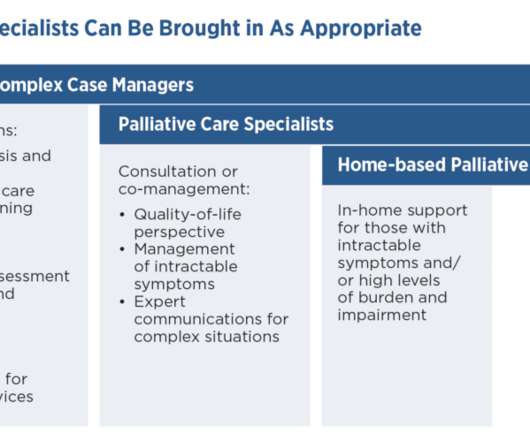Supporting the Continuum of Care for Serious Illness in Medicaid Managed Care
NASHP
OCTOBER 22, 2021
People with serious and life-threatening health conditions experience care needs that drive costs, including hospital admissions , emergency department utilization , and nursing home care. As part of contract and systems oversight, states engage in a range of quality assessment and improvement strategies.











Let's personalize your content